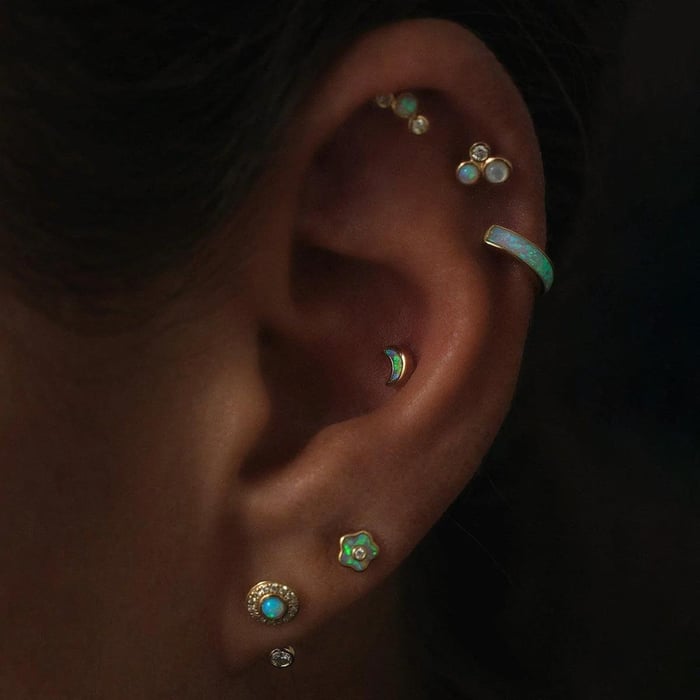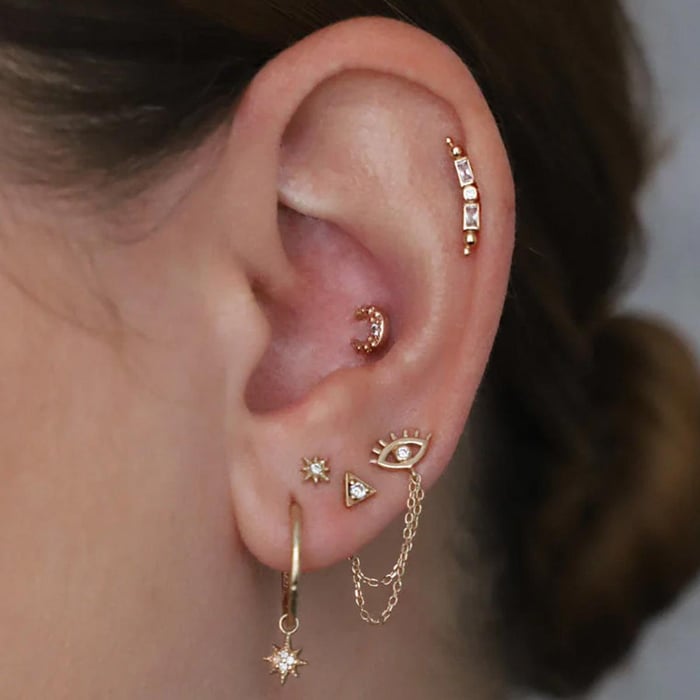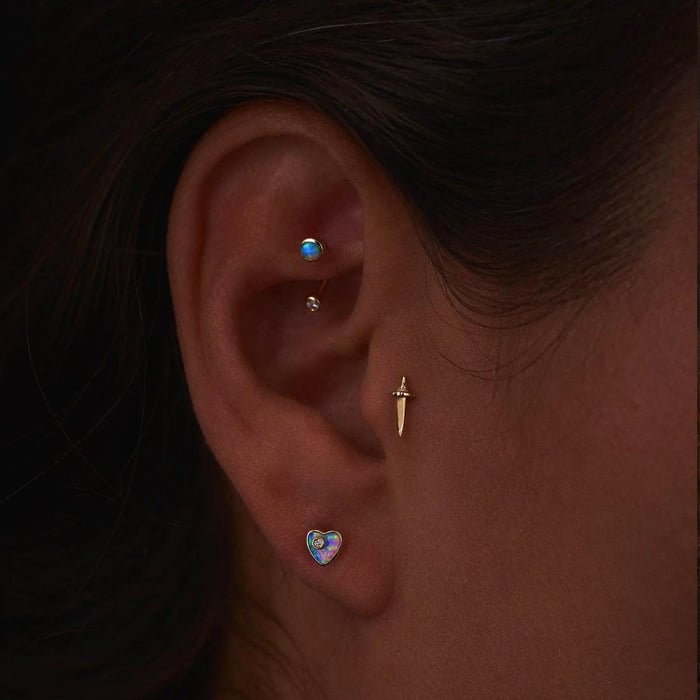Ear piercings are very common among women of all ages. You may have even gotten one in the recently or are thinking abot getting another piercing.
But what about cartilage piercings? The thing about cartilage piercings is that they are much more visible than ear lobe piercings and definitely make more of a statement. A reason many people are queuing up to get theirs done.
If you are thinking about getting a cartilage piercing or just curious about them, then read on to learn everything there is to know about cartilage piercings.
Cartilage piercing: What is it?
A cartilage piercing is a popular type of body modification where your cartilage tissue is pierced to serve as placement for jewelry. This piercing is made on your cartilage, a tough, rubbery tissue that makes up much of the structure of the ear.
While cartilage piercings are usually above the earlobes, you can have them anywhere on your cartilage—the daith, the tragus, and the conch.
During the piercing process, the piercer will make a small hole in your ear and insert a piece of jewelry. After which, you can insert a piece of jewelry that suits your ear shape and personality.
How much does a cartilage piercing hurt?
There is no easy answer when it comes to how much a cartilage piercing hurts. It really varies from person to person and even from piercing to piercing. While some people report feeling only a sharp pinch during the piercing, others say it hurts quite a bit more.
The pain you feel during the piercing will also depend on the part of your ear being pierced. The cartilage is a tough tissue, so piercings done on thicker parts of the cartilage, like the conch, can be pretty painful.
That said, there are a few things you can do to minimize the pain. First, make sure you go to a reputable piercer who knows what they're doing. A good piercer will ensure the piercing is as quick and painless as possible.
Second, try to relax as much as you can during the piercing. The less tense your muscles are, the less pain you'll feel.
How long will my cartilage piercing take to heal?
Cartilage piercings usually take a bit longer to heal than other types of ear piercings. While ear lobe piercings can heal in as little as 6 weeks, cartilage piercings can take up to 6 months to 12 months to fully recover.
The time it takes for your cartilage piercing to heal also depends on what part of your ear you are getting pierced. Cartilage piercings on the outer rim of the ear usually heal faster than those on the tragus or conch.
What type of jewelry can I use?
There are different types of cartilage piercing jewelry that you can choose from. The most popular types are hoops, barbells and studs. Depending on your taste and budget, you can choose from a wide range of Cartilage jewelry made from different materials, such as gold, silver, surgical steel and titanium.
It's best to go for a hypoallergenic metal if you have sensitive skin. Some metals can cause irritation or even an allergic reaction. Stainless steel jewelry is also a good choice as they are less likely to cause infection. How do I take care of my cartilage piercing?
Taking care of your cartilage piercing is essential to help it heal properly and to avoid infection. Here are a few aftercare rules you should observe:
- Clean the piercing twice daily with saline solution or mild soap and warm water.
- Do not remove the body jewelry until the piercing is fully healed.
- Avoid sleeping on the side with the piercing as this can irritate it.
- Avoid touching the piercing without washing your hands thoroughly.
- Limit your use of phones, earphones and earbuds as they can also irritate the piercing.
- Stay away from swimming pools and hot tubs as they can contain bacteria that can cause infection.
- If you notice any redness, swelling, discharge or bump around the piercing, it could be a sign of infection. Contact your piercer or doctor immediately.
Cartilage piercing can be a fun way to express your style and personality. Just make sure you do your research and go to a reputable piercer to avoid any complications. With proper care, your Cartilage piercing will heal quickly, and you'll be able to enjoy your new jewelry in no time.


















